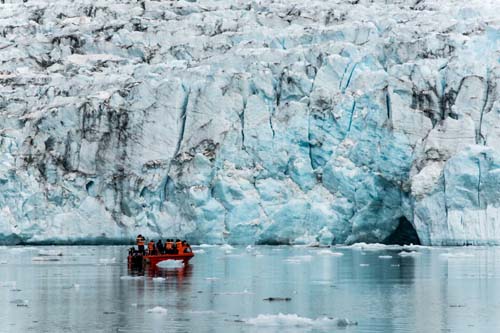CARBON DIOXIDE released from the deep ocean helped end the last ice age according to research by the University of St Andrews.
Scientists believe the research will also offers new insights into the current and future path of climate change.
Climate scientist at the University of St Andrews, Dr James Rae, co-authored the international study led by the University of Southampton.
The study was carried out by a team of academics from the UK, Spain and Australia studied the composition of ancient marine organisms that inhabited the surface of the ocean thousands of years ago in order to trace its carbon content.
The results revealed that CO2 was released from the ocean into the atmosphere, warming the planet and melting the ice sheets that would have covered Scotland and much of the rest of Northern Europe and America.
The magnitude and rapidity of the swings in atmospheric CO2 across the Ice Age cycles suggests that changes in ocean carbon storage are important drivers of natural atmospheric CO2 variations.
Dr Rae said: “Scientists have long puzzled over the processes that triggered the rise in CO2 levels and contributed to the end of the last glacial period.
“Theories pointed to an increased release from the deep ocean around Antarctica. The new study now proves categorically that carbon stored in an isolated reservoir deep in the southernmost sector of the Atlantic, Pacific and Indian Oceans re-connected with the atmosphere, driving a rise in atmospheric CO2 and an increase in global temperatures.
“CO2 and climate change in the past offer a fantastic opportunity for us to better understand the path of future climate change,” continued Dr Rae.
“The ocean currently takes up about a third of CO2 emitted by humans. Improved understanding of what currently controls the exchange of CO2 between the ocean and the atmosphere will enable us to predict how CO2 uptake may change in the future.
“Given the impact of climate change in the past, you’ve got to wonder what adding the same amount of CO2 to the atmosphere, but 100 times faster, will do to the global climate in years to come.”


